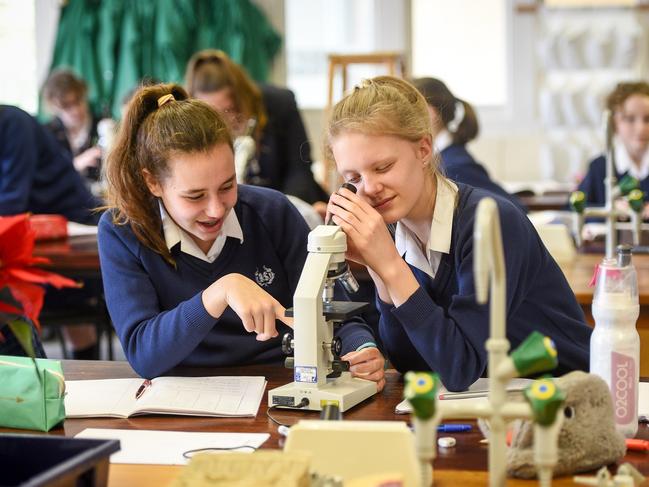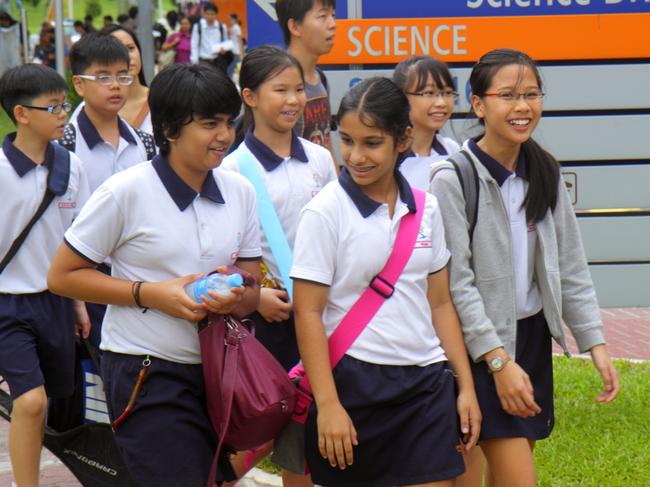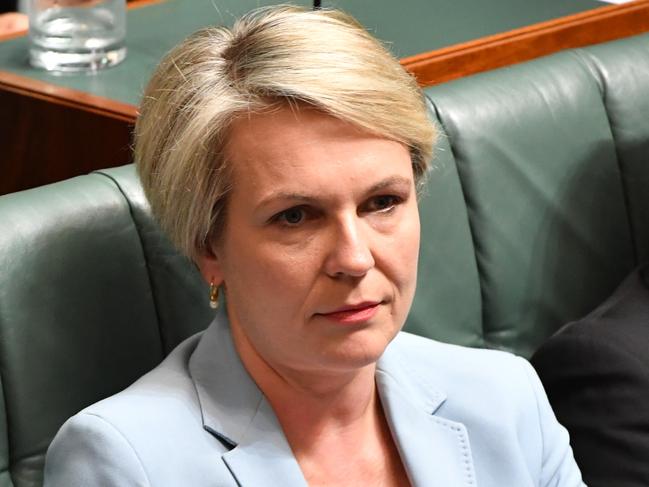Australian education system in need of urgent reform after shock report
Australia’s shocking results in the well-regarded PISA report highlights the need for major reform of our education system.
It was ‘Grand Final’ time for schools across the world this week.
The 2018 Programme for International Student Assessment (PISA) report came out and countries across the world either cheered loudly waving their flag or sunk their heads into their hands.
That was certainly the case in Australia where the education sector was in shock that our results could be quite that bad.
While Australia had been slipping down the education league tables for some time – this was the first time we failed to get above the OECD average for maths, having skidded from near the top of the table in 2000.
The well-regarded report showed that Australian students are about a year behind in key subjects with our scores in reading, maths, and science dropping to Australia’s lowest since testing began.
We now have the dubious distinction of being one of seven countries including Finland, Iceland, Korea, the Netherlands, New Zealand and the Slovak Republic, which saw declining metrics across all three subjects while Estonia, the United Kingdom and Singapore streaked past us, and four regions in China topped the world.

PISA describes itself as the world’s most comprehensive and reliable indicator of students’ capabilities and a powerful tool that countries and economies can use to fine tune their education policies.
It is different from other tests, for example NAPLAN, in that it “tests what counts” by asking 15-year-olds on how they can apply core skills like reading, maths and science to real-life.
Once the hysteria of the headlines died down the blame began to settle around a few core issues.
Namely an overcrowded curriculum, lack of consistency between states and territories, an absence of evidence-based teaching, which has led to a focus on inquiry-based teaching, rather than explicit learning and $18 billion of Gonski funding being spent in the wrong places.
Dr Ben Jensen from Learning First, who has advised education systems around the world, said that while some consider PISA the holy grail others dismiss it, saying that there are only Asian countries at the top (not true, and hasn’t been for some time … in terms of reading there is no English-speaking country below Australia.)
While others claim it is all about migration and socio-economic status.
“Australia has been in economic boom times and still our kids decline. It sure has to be a wake up call that the USA – with all their poverty and disadvantaged schools – is now performing higher than us in reading,” Dr Jensen said, adding that the other accusation around PISA is that learning is more than literacy and numeracy.
“But PISA is more than literacy and numeracy. It assesses problem solving in math, science and reading. The problem solving is not simple – it assesses higher-order thinking skills and focuses on the skills required for students to be active participants in future society.”
The world is a far smaller place than it used to be. The tyranny of distance means Australia’s education system is used to gazing inward, comparing sectors and states and territories rather than international benchmarks.
One of the criticisms of our education system is that it is stuck in the dark ages. You only have to look at the bungling of NAPLAN online to see that Australia’s modern learning is not where it should be.
In a global economy we cannot just mark our education success against national yardsticks but maybe we should also keep some perspective about what exactly we are assessing when looking overseas.
Highly lauded countries Singapore and the four Chinese provinces that were included in PISA are unfair comparisons; Singapore is a city state while the four Chinese provinces do not reflect China.
This is the view of Dr. Philip Wing Keung Chan and Dr. Hongzhi Zhang, at the Faculty of Education at Monash University who are studying the differences between Australia and China and point out the education standards are so high in four Chinese provinces of Beijing, Shanghai, Jiangsu and Zhejiang because the schools have little choice and are under a strict mandate.
MORE EDUCATION NEWS:
Huge problem with Year 6 classes
Why Aussie students are stuck in the Dark Ages
Why our schools are falling behind

“These are always the trial regions in the reform of Chinese education development, which attracted most resources including policies supports, high quality teachers and infrastructure investments,” Dr Zhang said.
“These four provinces and cities are at the forefront of China’s economic development and education reform and have a good condition to compare with developed countries.”
Not to mention the fact that when it comes to wellbeing PISA also pointed out that Chinese students are low compared to other countries. Not surprising when Dr Chan says Chinese students start school at 7am and finish at 5pm.
“Then they have a lot of homework to do. They are told if they don’t finish their homework by 9pm they can go to bed but I don’t think this happens,” he said.
“Australian parents don’t want their children to spend those kinds of hours. And Chinese parents also provide lots of extra private tutoring programs.”
The Chinese academics are also fathers themselves and say they are enjoying their children being able to enjoy extra-curricular activities like chess, swimming and joining the orchestra in the Australian schooling system.
They say that the Australian education system should still be valued and that we can learn from the ACT, who saw a drop in average performance in PISA but still lead the country, while Victoria was also a standout staying stable.

Dr Fiona Mueller, director of education at the Centre for Independent Studies, said that the discrepancy between the states points to one of the key failings in the Australian education system.
Why, when we have a national curriculum, should some states be so vastly different?
“We actually have multiple curricula because we have a national curriculum foundation to Year 10 but it is of course implemented different in every state and territory and that lack of consistency is a fundamental weakness.
“It is interesting to see NSW, which has very determinedly stuck to its own syllabus-orientated curriculum has actually slipped so markedly in the PISA rankings. Why is the state with the greatest resources and great political influence actually performing poorly relatively speaking?” she said.
“It is now crunch time for taxpayers and parents to really demand an accounting of how policy decisions have lead us to this point.”
And if nothing else – that is one thing that all sides of politics, sectors and states and territories do seem to agree on.

Some say the line in the sand is now while others say it was the last 2015 PISA report but what no one wants is for the next report to show us slipping further.
Which is exactly what will happen if nothing is done according to an analysis of previous PISA international tests that has shown that Australia’s performance in maths will be the fifth worst in the developed world by 2030 – down from fifth best in 2000.
In reading Australia would drop to 23rd, from 4th in 2000 and in science we would slip to 31st from 7th, on the current trajectory.
A projected decline, done by a Federal Opposition ANU economist and checked by a former Prime Minister department official, examined the last three PISA tests and projects that Australia will sink to the bottom of the table of the developed countries if we do not reverse the slide.
“If we continue on the path we are on track to be one of the worst countries in the OECD by 2030,” Opposition spokeswoman Tanya Plibersek said.
With the country’s education ministers meeting in Alice Springs next week to discuss education reform we can only hope that we have passed that line in the sand and can now start to see real reform and national agreement.
